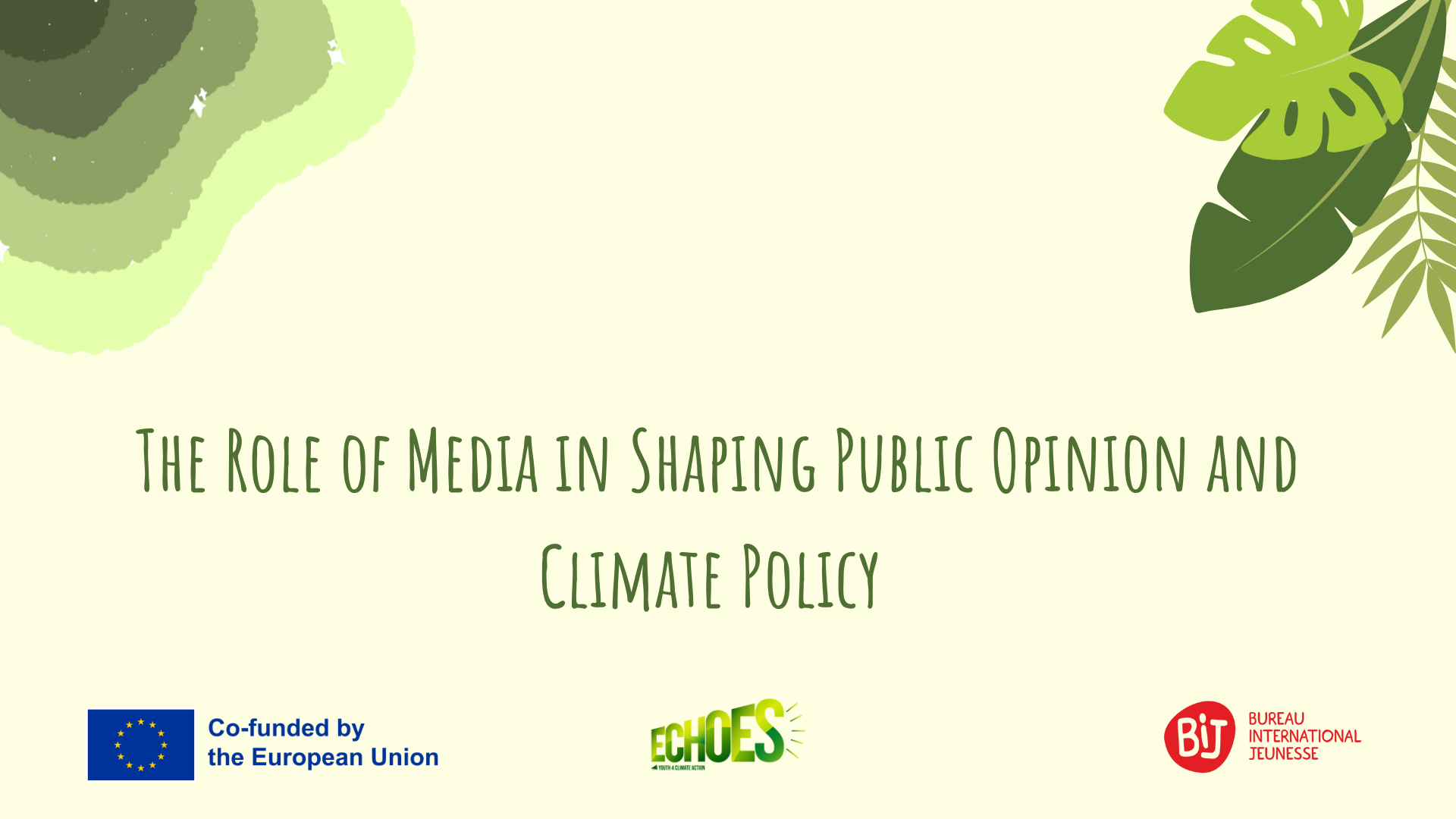
The Role of Media in Shaping Public Opinion and Climate Policy
Climate change has become one of the biggest challenges of our time and has become a highly controversial topic in global public policy. Rising temperatures, extreme weather events, and shifting ecosystems are just a few examples of the consequences of climate change. The media, across all platforms—whether it’s television, social media, or radio—are constantly addressing these issues, making them one of the most powerful tools for raising awareness. Due to their extensive reach and ongoing presence, they engage large audiences and drive discussions about the climate crisis. But how much influence do the media really have in shaping public opinion and, more importantly, influencing climate policy?
One of the most influential functions of the media is setting the public agenda. The media plays a crucial role in drawing public and political attention to environmental concerns. Through different formats like news, documentaries, and articles, it helps shape what topics are seen as important by both the public and policymakers. Media outlets also often report on climate studies, environmental events, and policy updates. These stories inform the public about issues like global warming, extreme weather, and melting ice, helping people understand the urgency of these problems.
Documentary movies are another way of media affecting the eco-politics. Documentaries such as An Inconvenient Truth and Before the Flood have helped educate people about climate change. By blending scientific evidence with personal stories, these films raise awareness and shed light on the political dimensions of environmental topics. In addition, media platforms often include opinion columns and editorials on environmental topics from a political viewpoint. These articles are written by journalists, specialists, and activists, discussing topics like the need for action or international cooperation acting as an influential factor for the shape of public opinion.
Investigative journalism is also uncovering environmental issues and their political impacts. In this type of journalism, journalists report on misconduct, environmental harm, political inaction, and interest group influence, increasing public awareness and encouraging calls for change.
Online activism and social media are also widely used to raise awareness about environmental concerns. Hashtags like #ClimateChange or #ActOnClimate are used to share facts and experiences. Environmental groups use social platforms to reach larger audiences and support their political efforts. Framing environmental issues can also play a significant role since the way media present environmental topics can emphasize certain elements while downplaying others. This selective presentation can affect how society and decision-makers react to environmental challenges. For instance, climate change might be framed as a fairness and equity issue, focusing on how it affects disadvantaged communities more severely, or as a financial concern, drawing attention to its possible effects on industries and employment. These portrayals can guide political narratives and shape how the public perceives the issue.
Furthermore, media content affects how people perceive environmental topics, shaping their attitudes and beliefs. News coverage and commentary can increase public pressure on political figures and international organizations. Another significant function of the media is holding individuals and organizations in power responsible for their environmental action or inaction. Exposing misconduct and shortcomings can increase public pressure and promote transparency.
Media also offers a platform for open conversations about environmental issues. It allows experts, policymakers, and citizens to express their ideas, debate solutions, and promote sustainable change. At the same time, media crosses borders and connects people worldwide, allowing the exchange of ideas and environmental knowledge. Global coverage of issues like climate change or deforestation can encourage unity and international collaboration.
Last but not least, media discussion can affect how environmental policies are shaped and how international negotiations unfold. By focusing on the urgency or importance of specific topics, the media can prompt leaders to act or prioritize certain environmental initiatives. Coverage of global events like climate conferences can also influence how these discussions are viewed by the public, shift diplomatic approaches, and potentially affect the outcomes of negotiations.
References:
Jingala, N., Chaudhry, N. (2023). Media’s Role in Global Ecopolitics: Unravelling Climate Change Narratives and Fostering Informed Dialogue. In: Tripathi, S., Bhadouria, R., Singh, R., Srivastava, P., Devi, R.S. (eds) Eco-Politics and Global Climate Change. Environment & Policy, vol 65. Springer, Cham. https://doi.org/10.1007/978-3-031-48098-0_ 12